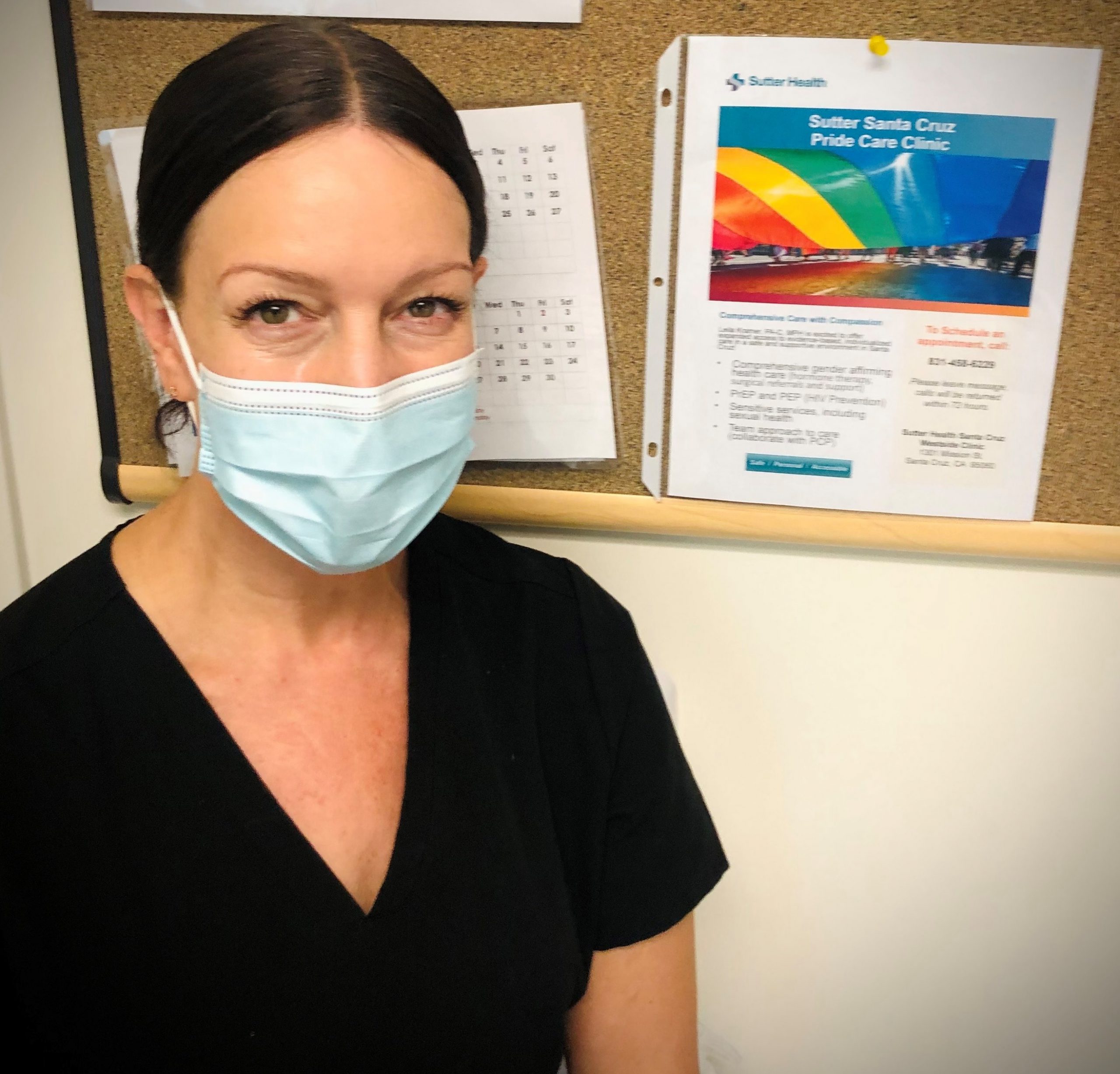Opening the Sutter Santa Cruz Pride Care Clinic has been a career defining moment for Leila Kramer, Certified Physician Assistant with the Palo Alto Medical Foundation (PAMF).
“I am so proud to open a clinic that concentrates on the gender care and sexual health needs of patients who identify as Lesbian, Gay, Bisexual, Transgender, Queer (LGBTQ), as well as men who have sex with men, ” enthused Kramer. “I couldn’t have done this without the support of PAMF and Sutter Health. I feel like all my education and job experiences have led to this milestone.”
Decades of preparation, hard work and making the most of every opportunity helped Kramer ‘hit the ground running’ when she started working closely with two PAMF physicians last year. Taking Leila under their wings were Dr. Jenny Schreck, a family medicine physician with expertise in gender care, and Dr. Aran Nichol, an infectious disease physician with expertise in HIV and AIDS care.
“I had earned my physician assistant certificate, had a master’s degree in public health, and had worked at Planned Parenthood for seven years,” Kramer said. “But I still needed training in the area of gender care and infectious disease.”
Dr. Schreck, a primary care physician who cares for hundreds of transgender patients in Santa Cruz, mentored Kramer for a year. “By shadowing Dr. Schreck I learned how to start and maintain a patient on hormone replacement therapy, navigate insurance, refer to gender specialty therapists and make referrals for gender affirming surgery.”
Dr. Nichol increased Kramer’s knowledge about medications that reduce the risk of contracting HIV. These are PEP, which is taken after a possible HIV exposure, and PreP, which is taken before a possible HIV exposure.
“These medications can prevent the transmission of HIV and are incredibly important,” said Kramer. “However, they also pose some risk of renal injury and bone loss. One of the things I do at Pride Care Clinic is assess risk and order and review lab tests to routinely monitor against these risks in patients who take these medications.”
Kramer’s typical work day at the clinic might also include screening patients for sexually transmitted infections or coordinating care with a patient’s primary care provider.
“I feel privileged to have received such extensive training, and I’m excited to be able to offer these services to my patients.” Kramer said. Few clinicians were taught how to care for LGBTQ+ patients during their medical education which can make it difficult for patients to find providers who know how to meet their specific medical needs.
Investing in Kramer’s additional training and helping her launch the Pride Care Clinic is an example of how Sutter Health is working to improve care for LGBTQ+ patients. The Sutter Bay Medical Foundation is also developing a Comprehensive Gender Care training program to help more primary care providers learn how to deliver evidence-based, culturally competent care to LGBTQ+ patients.
“The ultimate goal is that any patient can come into our organization and see any primary care provider and receive the care they need,” said Kramer. “Until we reach that point, I am proud to offer gender care and sexual health services to patients in a central, convenient and caring clinic.”





